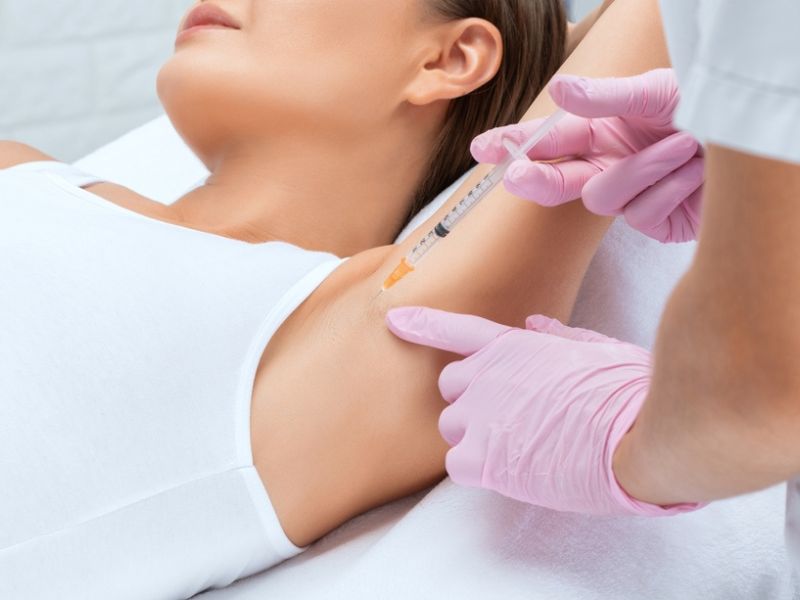Botox could be an excellent option if you suffer from excessive sweating, but nothing seems to help. Although Botox is primarily known as a wrinkle-reducer, the FDA has approved it to help prevent hyperhidrosis – an armpit sweating condition caused by excessive sweating.
Michele Green, MD, the cosmetic dermatologist, said that’s where our sweat glands are most concentrated. “Eccrine sweat glands exist throughout our bodies but are concentrated in areas like the feet, palms, and armpits.”
It is possible to prevent this by injecting Botox directly into sweat glands to block the release of acetylcholine: a neurotransmitter that communicates with sweat glands. Dr. Green said that this leads to decreased sweating in the targeted areas.
Have you ever considered botox for sweating? Here’s everything you need to know about the treatment.

Image Credit: Shutterstock/dimid_86
Botox: What Is It?
A board-certified plastic surgeon, Smita R. Ramanadham, MD, says Botox is one of several neuromodulators used to reduce wrinkles. However, Botox is more precisely an injection containing a specific strain of botulinum toxin
Excessive Sweating: What Is The Cause?
Hyperhidrosis is the medical term for excessive sweating. Dr. Green says, “This is a condition caused by an overactivity of sweat glands, leading to excessive sweating for no particular reason, even if you are in a cool area, not moving around, and not anxious or nervous.”
Is Botox Effective For Sweating?
It blocks nerves’ communication with sweat glands, which reduces sweat glands’ secretions, says Dr. Ramanadham. Botox treats sweating like it does wrinkles when it’s injected: It blocks nerve communication with sweat glands.

Image Credit: Shutterstock/PeopleImages.com – Yuri A
Most people prioritize minimizing excess sweat because it can cause social anxiety, sweating through clothing, and general discomfort.
Can There Be Side Effects Or Risks Involved?
Dr. Green says Botox for hyperhidrosis typically causes localized irritation or bruising that resolves within a few days. She says, “More rare and serious side effects, which occur in fewer than 1% of patients, include muscle weakness, difficulty breathing, and trouble with bladder control.” Experienced and board-certified doctors should administer Botox for hyperhidrosis to minimize these adverse side effects.